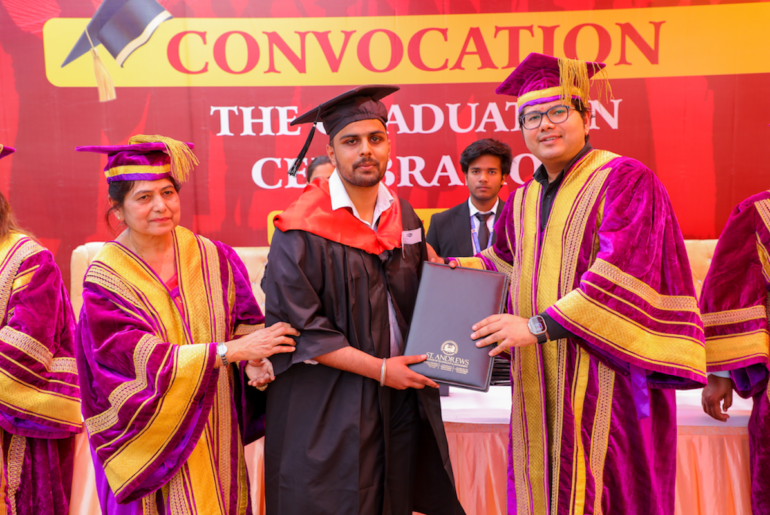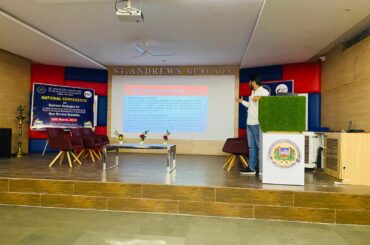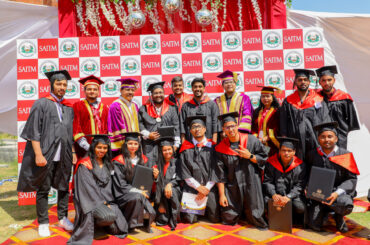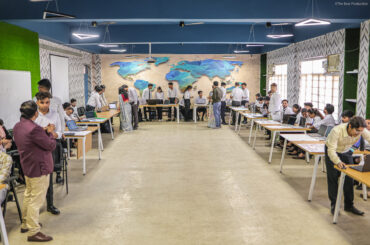B Tech Branches
The Bachelor of Technology (B.Tech) is a popular undergraduate degree program that specializes in engineering and technology disciplines. The program offers a variety of B Tech branches catering to diverse interests and industry demands.
Some of the common branches include Mechanical Engineering, which focuses on the design and manufacturing of mechanical systems; Electrical Engineering, which deals with electricity, electronics, and electromagnetism; Computer Science Engineering, which emphasizes software development, algorithms, and system design; and Civil Engineering, which is centered on the construction of infrastructure like roads, bridges, and buildings.
Other branches such as Chemical Engineering, Aerospace Engineering, and Biotechnology also attract students with specific interests in these fields. Each branch provides a deep dive into its respective area, combining theoretical knowledge with practical application, ensuring students are well-prepared for technological challenges in their future careers.
Some of the most opted courses in India and St. Andrews college or different Engineering college or Management colleges are as follows:-
- Btech
- Btech CSE
- Btech ETCE
- MTech
- BCA
- BBA
- MBA
- MCA
- DPharma – St. Andrews College of Pharmacy
- BPharma – St. Andrews College of Pharmacy
- BArch – St. Andrews College of Architecture
List of Common B.Tech branches
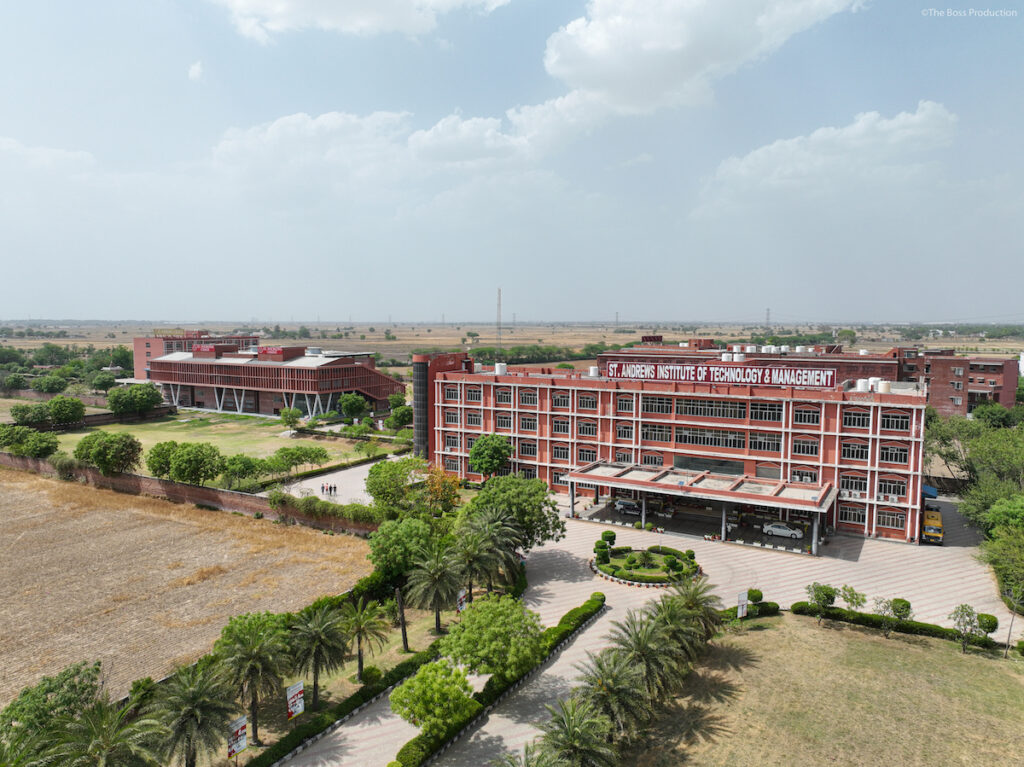
Computer Science Engineering {CSE}
Focus: Software development, algorithms, data structures, artificial intelligence, machine learning, cybersecurity.
Career Opportunities: Software developer, data scientist, cybersecurity analyst, AI engineer, system analyst.
Information Technology {IT}:
Focus: Information systems, database management, networking, web development.
Career Opportunities: IT consultant, network engineer, database administrator, web developer, systems administrator.
Electronics and Communication Engineering {ECE}
Focus: Communication systems, signal processing, electronic circuits, microprocessors.
Career Opportunities: Communication engineer, electronics design engineer, signal processing specialist, embedded systems engineer.
Electrical Engineering (EE)
Focus: Power systems, electrical machines, control systems, renewable energy.
Career Opportunities: Electrical engineer, power systems engineer, control systems engineer, renewable energy consultant.
Mechanical Engineering (ME)
Focus: Mechanics, thermodynamics, manufacturing processes, materials science.
Career Opportunities: Mechanical engineer, manufacturing engineer, thermal engineer, automotive engineer.
Civil Engineering (CE)
Focus: Structural engineering, geotechnical engineering, transportation engineering, environmental engineering.
Career Opportunities: Civil engineer, structural engineer, environmental engineer, transportation engineer.
Chemical Engineering (ChE)
Focus: Chemical reactions, process engineering, materials science, biotechnology.
Career Opportunities: Chemical engineer, process engineer, materials scientist, biotechnologist.
Aerospace Engineering
Focus: Aerodynamics, propulsion systems, avionics, aircraft and spacecraft design.
Career Opportunities: Aerospace engineer, avionics engineer, propulsion engineer, flight systems engineer.
Biotechnology
Focus: Genetic engineering, microbiology, bioinformatics, pharmaceuticals.
Career Opportunities: Biotechnologist, genetic engineer, microbiologist, pharmaceutical scientist.
Agricultural Engineering
Focus: Agricultural machinery, soil and water engineering, food processing.
Career Opportunities: Agricultural engineer, soil and water engineer, food processing engineer.
Environmental Engineering
Focus: Waste management, water and air pollution control, sustainable development.
Career Opportunities: Environmental engineer, waste management specialist, sustainability consultant.
Industrial Engineering
Focus: Operations research, manufacturing systems, quality control, supply chain management.
Career Opportunities: Industrial engineer, operations manager, quality control engineer, supply chain analyst.
Metallurgical Engineering
Focus: Metallurgy, materials science, corrosion engineering, extractive metallurgy.
Career Opportunities: Metallurgical engineer, materials scientist, corrosion engineer, extractive metallurgist.
Marine Engineering
Focus: Marine propulsion systems, ship design, offshore structures, naval architecture.
Career Opportunities: Marine engineer, naval architect, offshore engineer, ship design engineer.
Petroleum Engineering
Focus: Oil and gas extraction, reservoir engineering, drilling technology, petrochemical engineering.
Career Opportunities: Petroleum engineer, reservoir engineer, drilling engineer, petrochemical engineer.
Textile Engineering
Focus: Textile production, fiber technology, dyeing and finishing, textile machinery.
Career Opportunities: Textile engineer, production manager, quality control manager, textile designer.
Automobile Engineering
Focus: Vehicle design, automotive electronics, engine technology, vehicle dynamics.
Career Opportunities: Automobile engineer, vehicle designer, automotive electronics engineer, test engineer.
Mining Engineering
Focus: Mineral extraction, mine safety, mine design, mineral processing.
Career Opportunities: Mining engineer, mine safety engineer, mineral processing engineer, geological engineer.
Mechatronics Engineering
Focus: Robotics, automation, control systems, sensors and actuators.
Career Opportunities: Mechatronics engineer, robotics engineer, automation engineer, control systems engineer.
Production Engineering
Focus: Manufacturing processes, production planning, industrial management.
Career Opportunities: Production engineer, manufacturing engineer, operations manager, process improvement specialist.
Introduction to BTech
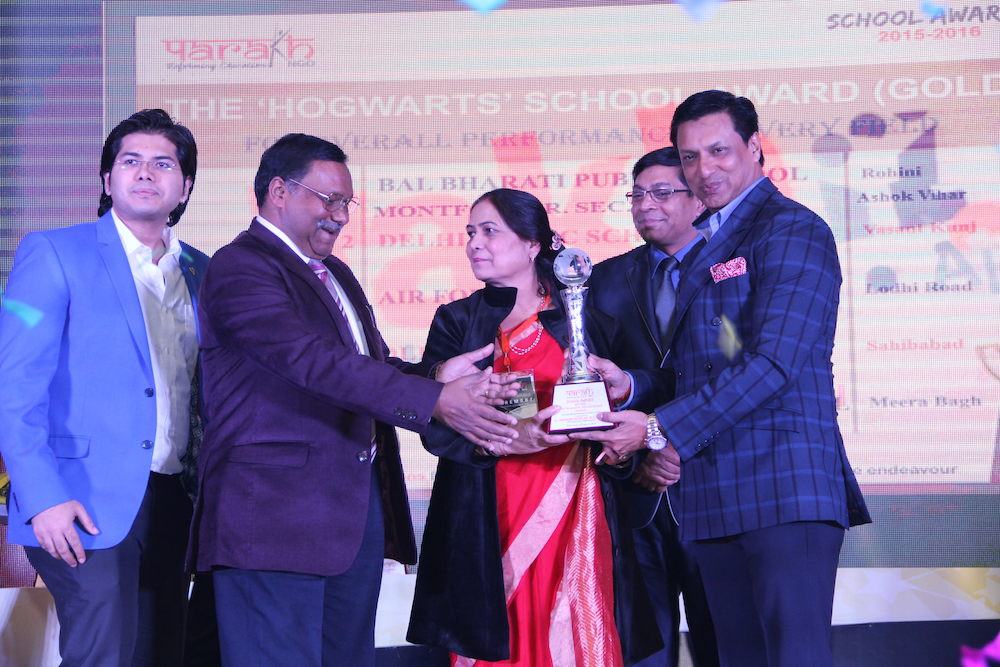
The Bachelor of Technology (BTech) course is one of the most sought-after undergraduate engineering degrees in India. It is a professional degree awarded to students who complete a four-year course in engineering and technology. Pursuing a BTech degree, with various B Tech branches, from the best engineering colleges can provide better career opportunities and industry exposure.
Here’s a comprehensive introduction to BTech:
Key Features:
Duration:
The BTech program typically spans four years, divided into eight semesters.
Specializations:
There are numerous specializations available in BTech, including but not limited to:
Computer Science Engineering
Mechanical Engineering
Electrical Engineering
Civil Engineering
Electronics and Communication Engineering
Information Technology
Chemical Engineering
Aerospace Engineering
Biotechnology
Eligibility Criteria:
Completion of 10+2 or equivalent examination with Physics, Chemistry, and Mathematics (PCM) as core subjects.
Candidates must qualify in entrance examinations such as JEE Main, JEE Advanced, state-level exams, or university-specific exams.
Admission Process:
Admissions are generally based on the performance in entrance exams followed by counseling sessions.
Some private institutions may also consider merit-based admissions or their entrance tests.
Curriculum:
The curriculum is a mix of theoretical knowledge and practical application.
It includes core subjects, elective courses, lab sessions, workshops, projects, and internships.
Emphasis is placed on developing problem-solving skills, technical proficiency, and industry readiness.
Career Opportunities;
BTech graduates have diverse career opportunities in various industries such as IT, manufacturing, healthcare, automotive, aerospace, energy, and more.
Common roles include Software Engineer, Mechanical Engineer, Civil Engineer, Electrical Engineer, Data Analyst, and more.
Graduates can also pursue higher education such as MTech, MBA, or MS, or engage in research and development.
Top Engineering Colleges in India:
BTech Colleges in India include the best engineering colleges such as the Indian Institutes of Technology (IITs), National Institutes of Technology (NITs), St. Andrews Institute of Technology & Management (SAITM), Indian Institutes of Information Technology (IIITs), and several state and private universities.
Eligibility Criteria for BTech Admissions

The eligibility criteria for Bachelor of Technology (BTech) admissions in top BTech colleges can vary slightly depending on the institution and the entrance examinations. However, the general criteria for various B Tech branches are as follows:
Educational Qualifications:
Class 12th or Equivalent: Candidates must have completed their 10+2 or equivalent examination from a recognized board.
Mandatory Subjects: Candidates must have completed their 10+2 education with Physics, Chemistry, and Mathematics (PCM) as core subjects.
Minimum Marks:
Candidates must have secured a minimum aggregate percentage in their 10+2 examinations. This can vary:
General category students: Typically, a minimum of 50-60% aggregate in PCM.
Reserved category students (SC/ST/OBC/PwD): Usually, a relaxation of 5-10% in the minimum aggregate marks.
Entrance Examinations:
National Level Exams: Most prestigious institutions require scores from national level entrance exams such as:
Joint Entrance Examination (JEE) Main: Conducted by the National Testing Agency (NTA).
Joint Entrance Examination (JEE) Advanced: For admission to IITs, conducted by one of the IITs on a rotational basis.
State Level Exams: Various states conduct their own entrance exams, such as:
Maharashtra Common Entrance Test (MHT-CET)
Karnataka Common Entrance Test (KCET)
West Bengal Joint Entrance Examination (WBJEE)
Institutional Level Exams: Some private universities conduct their own entrance exams, such as:
Birla Institute of Technology and Science Admission Test (BITSAT)
Vellore Institute of Technology Engineering Entrance Exam (VITEEE)
Age Limit:
The age limit criteria can vary:
Generally, candidates must be at least 17 years old.
There may be an upper age limit for certain entrance exams (e.g., JEE Main).
Additional Criteria:
Domicile Requirements: Some state-level institutions may have domicile requirements for a certain percentage of seats.
Medical Fitness: Certain institutions might require a medical fitness certificate.
Admission to B Tech Courses
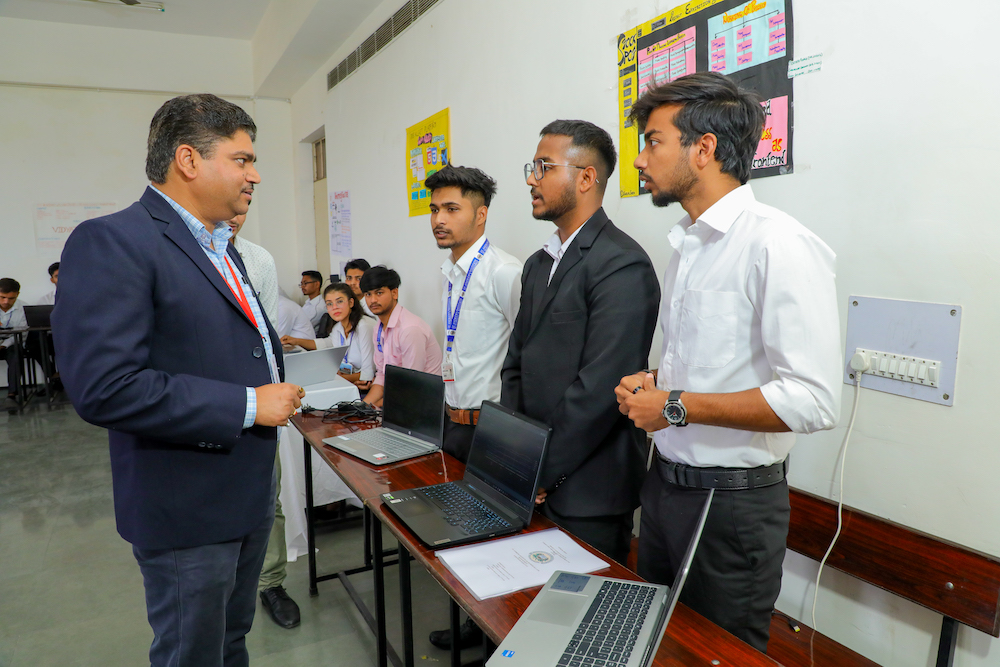
The admission process for BTech courses involves several steps, including meeting eligibility criteria, participating in entrance exams, and attending counseling sessions. This process applies to all B Tech branches.
Here is a detailed overview:
Meeting Eligibility Criteria
Candidates must ensure they meet the basic eligibility criteria, which generally include:
Completion of 10+2 or equivalent with Physics, Chemistry, and Mathematics (PCM) as core subjects.
Meeting the minimum aggregate percentage requirement in PCM, typically around 50-60% for general category students and slightly lower for reserved categories.
Entrance Examinations
In Admission to Bachelor of Technology, engineering entrance examination plays important role. These can be at the national, state, or institutional level:
National Level Exams:
Joint Entrance Examination (JEE) Main: Conducted by the National Testing Agency (NTA), this is the primary exam for admission to NITs, IIITs, and other centrally funded technical institutions.
JEE Advanced: For admission to the Indian Institutes of Technology (IITs), candidates must first qualify JEE Main and then clear JEE Advanced.
State Level Exams:
Maharashtra Common Entrance Test (MHT-CET)
Karnataka Common Entrance Test (KCET)
West Bengal Joint Entrance Examination (WBJEE)
Other state-specific exams as conducted by respective state education boards.
Institutional Level Exams:
BITSAT: For admission to Birla Institute of Technology and Science (BITS) campuses.
VITEEE: For admission to Vellore Institute of Technology (VIT).
Other private university-specific exams.
Application Process
Register for Entrance Exams:
Candidates need to register for the entrance exams they are eligible for and interested in. This typically involves filling out an online application form, paying the exam fee, and uploading necessary documents.
Appear for Entrance Exams:
Candidates must prepare for and appear in the entrance exams as per the schedule. Performance in these exams is crucial for securing a seat in a desired institution.
Results and Rank Lists
Results Declaration:
The results of entrance exams are usually declared online, with candidates being able to view their scores and rank.
Rank Lists and Cut-offs:
Based on the results, rank lists are prepared, and cut-off marks are announced for different institutions and courses.
Counseling and Seat Allotment
Counseling Registration:
Candidates who qualify the entrance exams must register for the counseling process conducted by respective authorities (e.g., JoSAA for JEE Main and Advanced, state authorities for state exams).
Choice Filling and Locking:
During counseling, candidates fill in their choices of institutions and courses based on their ranks and preferences. They must lock their choices within the specified timeframe.
Seat Allotment:
Seats are allotted based on rank, preferences, and availability. Candidates are informed of their allotment status through the counseling portal.
Document Verification:
Candidates need to report to the designated centers for document verification and confirmation of admission. They must carry all original documents, such as:
10th and 12th mark sheets
Entrance exam scorecard and rank card
Counseling allotment letter
Category certificate (if applicable)
Passport-sized photographs
Photo ID proof
Admission Confirmation
Fee Payment:
After document verification, candidates must pay the admission fee to confirm their seat in the allotted institution.
Reporting to the Institution:
Finally, candidates need to report to the respective institutions as per the schedule to begin their academic journey.
Choosing the Right B.Tech Branch for Your Career
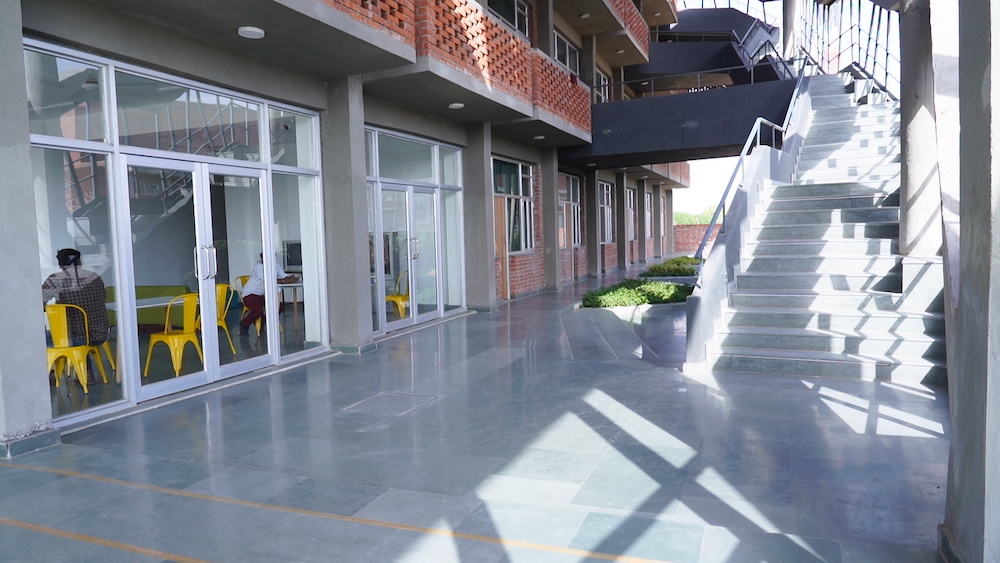
Choosing the right B.Tech branch is a crucial decision that can shape your career trajectory.
Here are some key considerations to help you make an informed choice:
Interest and Passion
Self-Assessment: Reflect on subjects that excite you. Are you more inclined towards coding, machinery, electronics, or chemical processes?
Practical Exposure: Engage in extracurricular activities or projects related to your interests to gain practical insights.
Career Goals
Long-term Vision: Identify your long-term career aspirations. Do you envision yourself in a tech company, research, academia, or starting your own business?
Industry Demand: Research current and future industry trends to choose a branch with promising job prospects.
Branch Overview
Computer Science Engineering (CSE): Focuses on software development, algorithms, and computer systems. Ideal for those interested in coding, AI, and cybersecurity.
Mechanical Engineering: Deals with designing and manufacturing machinery. Suitable for those fascinated by mechanics and industrial processes.
Electrical and Electronics Engineering (EEE): Covers electrical systems, circuits, and electronics. Perfect for those keen on working with electrical devices and systems.
Civil Engineering: Involves construction and infrastructure development. Best for those interested in designing and building physical structures.
Chemical Engineering: Combines chemistry and engineering principles to process materials. Great for those interested in working with chemical processes and materials science.
Information Technology (IT): Similar to CSE but with a focus on IT infrastructure, network management, and databases.
Placement Opportunities
College Placement Records: Research the placement statistics of the branches you are considering. Look for average salaries, top recruiters, and job roles offered.
Alumni Network: Connect with alumni to gain insights into their career paths and current job market scenarios.
Higher Education and Specialization
Postgraduate Options: Consider the availability of specialized postgraduate programs in your chosen branch.
Research Opportunities: Evaluate the scope for research and innovation in the branch, especially if you are inclined towards academia or R&D.
Faculty and Facilities
Faculty Expertise: Investigate the qualifications and experience of faculty members in the department.
Laboratories and Resources: Ensure that the branch has well-equipped labs and resources for practical learning.
Internships and Industry Exposure
Internship Opportunities: Look for branches that offer ample internship opportunities with reputed companies.
Industry Collaborations: Check if the college has tie-ups with industries for practical exposure and hands-on training.
Personal and Financial Considerations
Course Fees: Compare the fee structures of different branches and consider your budget.
Location: Factor in the geographical location of the college and its proximity to industry hubs related to your branch.
B Tech Branches with the Best Career Prospects

When considering the best B.Tech branches for career prospects, it is essential to evaluate various factors such as industry demand, salary potential, and opportunities for advancement.
Here are some of the top B.Tech branches that are known for offering excellent career prospects:
Computer Science Engineering (CSE);
Overview: Focuses on computer programming, software development, algorithms, data structures, and computer systems.
Career Opportunities: Software Developer, Data Scientist, AI/ML Engineer, Cybersecurity Expert, System Analyst, etc.
Industry Demand: High demand in tech companies, startups, IT firms, and virtually every sector undergoing digital transformation.
Salary Potential: High, with significant growth opportunities.
Information Technology (IT)
Overview: Emphasizes IT infrastructure, networking, databases, and information systems.
Career Opportunities: Network Engineer, Database Administrator, IT Consultant, Systems Administrator, Cloud Architect, etc.
Industry Demand: Consistently strong, especially with the rise of cloud computing and big data.
Salary Potential: Comparable to CSE, with high earning potential.
Electronics and Communication Engineering {ECE}:
Overview: Combines electrical engineering with computer science, focusing on electronic devices, circuits, communication equipment like transmitters and receivers, and integrated circuits.
Career Opportunities: Electronics Engineer, Communication Engineer, Embedded Systems Developer, VLSI Design Engineer, etc.
Industry Demand: High demand in telecommunications, consumer electronics, healthcare, and automotive industries.
Salary Potential: High, especially for specialized roles.
Mechanical Engineering
Overview: Involves the design, analysis, and manufacturing of mechanical systems.
Career Opportunities: Mechanical Engineer, Automotive Engineer, Aerospace Engineer, Robotics Engineer, Product Designer, etc.
Industry Demand: Steady demand in manufacturing, automotive, aerospace, and energy sectors.
Salary Potential: Moderate to high, with opportunities for growth in specialized fields.
Electrical Engineering
Overview: Focuses on electrical systems, circuits, and power generation and distribution.
Career Opportunities: Electrical Engineer, Power Systems Engineer, Control Systems Engineer, Electrical Design Engineer, etc.
Industry Demand: Strong demand in power generation, renewable energy, and industrial automation.
Salary Potential: High, especially in renewable energy sectors.
Civil Engineering
Overview: Involves the planning, design, construction, and maintenance of infrastructure projects such as buildings, roads, bridges, and water supply systems.
Career Opportunities: Civil Engineer, Structural Engineer, Project Manager, Environmental Engineer, Urban Planner, etc.
Industry Demand: Consistent demand due to ongoing infrastructure development and urbanization.
Salary Potential: Moderate to high, with significant growth in project management roles.
Chemical Engineering
Overview: Combines principles of chemistry, physics, and engineering to design and operate processes for producing chemicals, materials, and energy.
Career Opportunities: Chemical Engineer, Process Engineer, Petrochemical Engineer, Biochemical Engineer, etc.
Industry Demand: Strong demand in pharmaceuticals, petrochemicals, food processing, and environmental sectors.
Salary Potential: High, especially in specialized and hazardous industries.
Artificial Intelligence and Machine Learning
Overview: Focuses on developing intelligent algorithms and systems that can learn and make decisions.
Career Opportunities: AI Engineer, Machine Learning Engineer, Data Scientist, Robotics Scientist, etc.
Industry Demand: Rapidly growing demand in tech companies, research institutions, and industries adopting AI solutions.
Salary Potential: Very high, with substantial growth prospects.
Data Science and Analytics
Overview: Involves extracting insights from data using statistical and computational methods.
Career Opportunities: Data Scientist, Data Analyst, Business Analyst, Data Engineer, etc.
Industry Demand: Extremely high demand across various sectors such as finance, healthcare, e-commerce, and technology.
Salary Potential: Very high, especially for experienced professionals.
B Tech in Computer Science Engineering
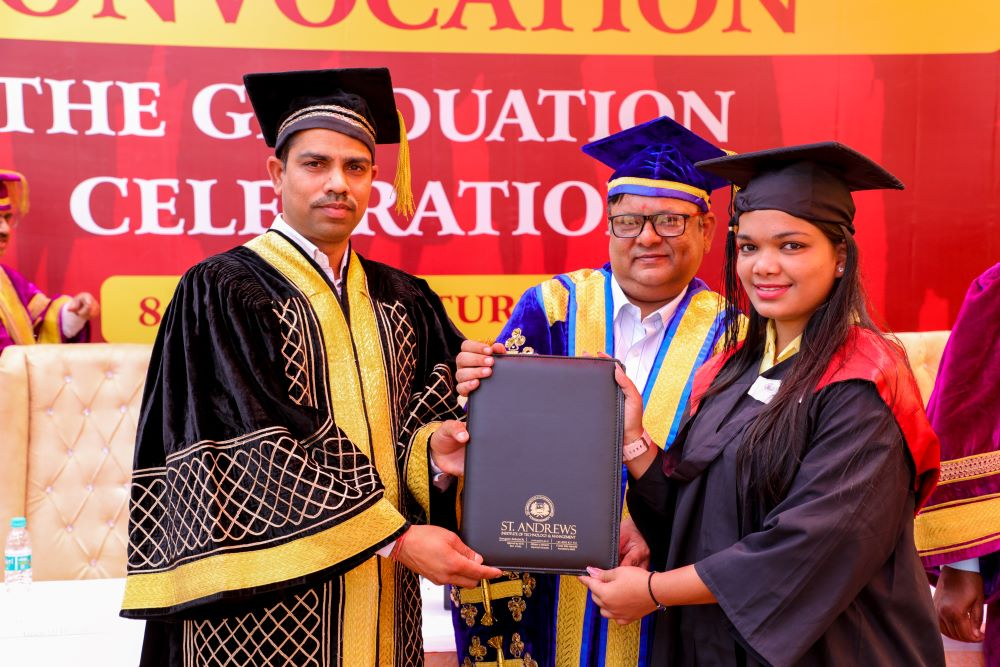
Overview:
B.Tech in Computer Science Engineering (CSE) is a highly sought-after specialization that focuses on the theoretical foundations of information, computation, and practical techniques for their implementation and application in computer systems. It prepares students for various roles in the tech industry by providing a strong foundation in programming, software development, and system design.
Key Subjects
Programming Languages: Java, Python, C++, etc.
Data Structures and Algorithms: Understanding and implementing various data structures and algorithms.
Database Management Systems (DBMS): Designing, implementing, and managing databases.
Operating Systems: Concepts of operating systems, including process management, memory management, and file systems.
Computer Networks: Understanding network protocols, architecture, and security.
Software Engineering: Principles of software development, project management, and software lifecycle.
Artificial Intelligence and Machine Learning: Introduction to AI and machine learning algorithms.
Web Technologies: Designing and developing web applications.
Cybersecurity: Protecting systems and networks from cyber threats.
Career Opportunities:
Graduates of CSE have a wide range of career opportunities in various sectors. Here are some prominent roles:
Software Developer/Engineer: Design, develop, and maintain software applications.
Data Scientist: Analyze and interpret complex data to help companies make decisions.
AI/ML Engineer: Develop algorithms and systems for artificial intelligence and machine learning applications.
Cybersecurity Expert: Protect information systems and networks from cyber threats.
Systems Analyst: Analyze and design information systems solutions to help organizations operate more efficiently.
Network Engineer: Design, implement, and manage computer networks.
Database Administrator: Ensure the performance, integrity, and security of databases.
Web Developer: Design and develop websites and web applications.
Industry Demand:
The demand for CSE graduates is consistently high, driven by rapid technological advancements and the increasing reliance on digital infrastructure across all industries. Sectors with high demand for CSE professionals include:
Technology Companies: Software development, IT services, tech startups.
Finance: Fintech companies, banks, and financial institutions.
Healthcare: Health informatics, telemedicine, medical software development.
E-commerce: Online retail, logistics, and supply chain management.
Telecommunications: Network management, communication systems.
Automotive: Autonomous vehicles, embedded systems.
Salary Potential:
Computer Science Engineering placements generally offers high salary potential, with significant growth opportunities. Here’s a general salary range for various roles (indicative, varies by location and company):
Entry-Level: INR 4-8 lakhs per annum.
Mid-Level: INR 8-15 lakhs per annum.
Senior-Level: INR 15-30+ lakhs per annum.
B Tech in Civil Engineering
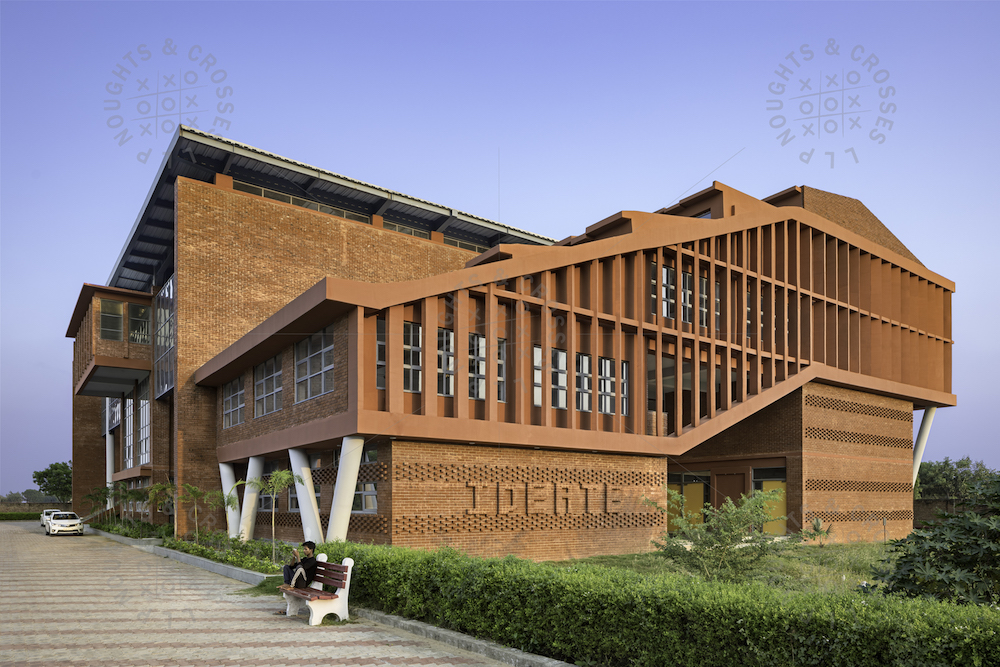
Overview:
B.Tech in Civil Engineering is a core engineering discipline focused on the design, construction, and maintenance of the built environment. This includes infrastructure projects such as buildings, roads, bridges, dams, and water supply systems. Civil engineers play a crucial role in developing and sustaining infrastructure that supports modern society.
Key Subjects:–
Structural Engineering: Analysis and design of structures that support or resist loads.
Geotechnical Engineering: Study of soil behavior and its application in the design of foundations and earth structures.
Transportation Engineering: Planning, design, operation, and maintenance of transportation systems.
Environmental Engineering: Development of systems and solutions to protect and improve environmental quality.
Water Resources Engineering: Management and distribution of water resources.
Construction Management: Planning, coordinating, and overseeing construction projects.
Surveying: Techniques and tools for measuring land and constructing maps.
Career Opportunities;
Graduates of Civil Engineering have a diverse range of career options in various sectors:
Civil Engineer: Planning, designing, and overseeing construction and maintenance of building structures and infrastructure.
Structural Engineer: Specializing in designing and analyzing structural systems.
Geotechnical Engineer: Focusing on foundation analysis, design, and construction.
Transportation Engineer: Working on the development and maintenance of transportation systems.
Environmental Engineer: Designing systems and processes to manage waste, water, and pollution.
Construction Manager: Overseeing construction projects to ensure they are completed on time and within budget.
Urban Planner: Developing plans and programs for land use in urban areas.
Industry Demand:-
The demand for civil engineers is driven by continuous urbanization, population growth, and the need for infrastructure development and maintenance. Key sectors include:
Construction: Residential, commercial, and industrial buildings.
Infrastructure Development: Roads, bridges, tunnels, and railways.
Water Resources Management: Dams, reservoirs, and irrigation systems.
Environmental Projects: Waste management, water treatment, and pollution control.
Consulting Firms: Providing expertise on various engineering projects.
Salary Potential;
Civil Engineering graduates can expect competitive salaries, with the potential for significant growth as they gain experience and take on more complex projects. Here’s a general salary range:
Entry-Level: INR 3-6 lakhs per annum.
Mid-Level: INR 6-12 lakhs per annum.
Senior-Level: INR 12-20+ lakhs per annum.
B Tech in Mechanical Engineering
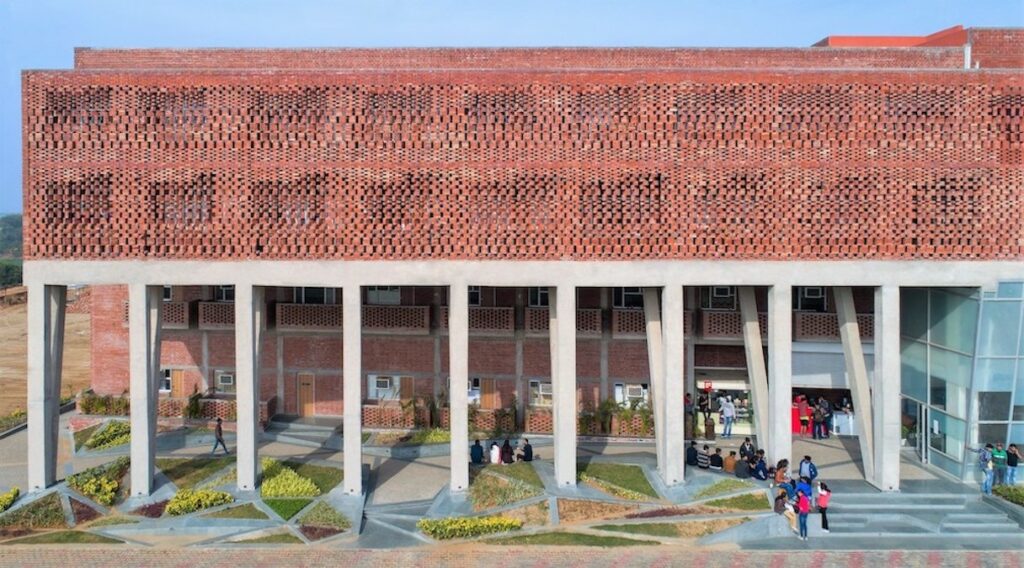
Overview:
B.Tech in Mechanical Engineering is a versatile and foundational engineering discipline that involves the design, analysis, manufacturing, and maintenance of mechanical systems. Mechanical engineers apply principles of mechanics, thermodynamics, and materials science to create and improve physical systems and devices.
Key Subjects:
Thermodynamics: Study of energy, heat transfer, and the principles governing energy conversion.
Fluid Mechanics: Analysis of fluid behavior and applications in systems like pipelines, pumps, and turbines.
Materials Science: Understanding the properties and applications of various materials used in engineering.
Manufacturing Processes: Techniques and technologies used in the production of mechanical components.
Machine Design: Principles and practices of designing mechanical components and systems.
Dynamics and Control: Study of the motion of objects and the forces that affect them, and control systems.
Heat and Mass Transfer: Analysis of heat exchange and mass transfer processes in engineering applications.
Mechanics of Solids: Study of the behavior of solid materials under various types of loading.
Career Opportunities :–
Mechanical Engineering graduates have a broad range of career opportunities in various sectors:
Mechanical Engineer: Designing, developing, and testing mechanical devices and systems.
Automotive Engineer: Working on the design, development, and manufacturing of vehicles.
Aerospace Engineer: Developing aircraft and spacecraft systems.
Robotics Engineer: Designing and building robotic systems for various applications.
Manufacturing Engineer: Overseeing and improving manufacturing processes and systems.
HVAC Engineer: Designing heating, ventilation, and air conditioning systems.
Product Designer: Creating and developing new products and improving existing ones.
Industry Demand;
The demand for mechanical engineers remains strong due to the continuous need for innovation and development in various industries. Key sectors include:
Automotive Industry: Design and production of vehicles and automotive components.
Aerospace Industry: Development of aircraft, spacecraft, and defense systems.
Manufacturing: Production of machinery, equipment, and consumer products.
Energy Sector: Development of renewable energy systems, power plants, and HVAC systems.
Robotics and Automation: Designing and implementing robotic systems for manufacturing and other applications.
{Salary Potential}
Mechanical Engineering graduates can expect competitive salaries, with opportunities for growth as they gain experience and specialize. Here’s a general salary range:
Entry-Level: INR 3-6 lakhs per annum.
Mid-Level: INR 6-12 lakhs per annum.
Senior-Level: INR 12-20+ lakhs per annum.
B Tech in Electrical Engineering

B.Tech in Electrical Engineering focuses on the study and application of electrical systems and technology. It covers the generation, transmission, distribution, and utilization of electrical energy. Electrical engineering is a fundamental field that underpins many aspects of modern technology and infrastructure.
Key Subjects;
Circuit Theory: Basic principles of electrical circuits, including analysis and design.
Electromagnetic Fields: Study of electric and magnetic fields and their interactions.
Power Systems: Design and analysis of electrical power generation, transmission, and distribution systems.
Electrical Machines: Principles and applications of machines like generators, transformers, and motors.
Control Systems: Design and implementation of systems that manage the behavior of dynamic systems.
Signal Processing: Techniques for analyzing and manipulating signals.
Digital Electronics: Study of digital systems, including logic gates, microprocessors, and digital circuits.
Power Electronics: Application of electronic devices for controlling and converting electrical power.
Career Opportunities;
Graduates of Electrical Engineering have a wide range of career options in various sectors:
Electrical Engineer: Design, develop, and maintain electrical systems and components.
Power Systems Engineer: Work on power generation, transmission, and distribution systems.
Control Systems Engineer: Design and manage systems that control dynamic processes.
Electronics Engineer: Develop and test electronic components and systems.
Instrumentation Engineer: Design and maintain instruments used for measuring and controlling physical quantities.
Energy Consultant: Provide expertise on energy management and efficiency.
Electrical Design Engineer: Create electrical schematics and systems for various applications.
Industry Demand,
The demand for electrical engineers is robust due to the growing need for energy solutions, technological advancements, and infrastructure development. Key sectors include:
Power Generation and Distribution: Work in utilities, renewable energy, and power plants.
Electronics and Consumer Goods: Develop and maintain consumer electronics and appliances.
Automotive Industry: Design and implement electrical systems in vehicles.
Telecommunications: Work on network infrastructure and communication systems.
Industrial Automation: Develop and maintain automated systems in manufacturing and production.
Salary Potential
Electrical Engineering graduates can expect competitive salaries, with potential for significant growth based on experience, specialization, and industry. Here’s a general salary range:
Entry-Level: INR 3-6 lakhs per annum.
Mid-Level: INR 6-12 lakhs per annum.
Senior-Level: INR 12-20+ lakhs per annum.
Top Government BTech Colleges in India

Here are some of the best engineering colleges in India, including top government BTech colleges renowned for their academic excellence, infrastructure, and placement records:
Indian Institutes of Technology (IITs)
Locations: Mumbai, New Delhi, Kanpur, Chennai, Kharagpur
Highlights: Top-ranked engineering institutions in India with excellent faculty, strong industry connections, and high placement rates.
St. Andrews Institute of Technology and Management (SAITM)
Location: Gurgaon, Haryana
Highlights: This engineering college offers B.Tech programs in various specializations, including CSE, CST, AI/ML, Data Science, and Electronics & Telecommunication Engineering.
National Institutes of Technology (NITs)
Locations: Tamil Nadu, Karnataka, Kerala, Telangana
Highlights: Renowned for their strong academic programs, excellent faculty, and good placement statistics.
College of Engineering, Pune (COEP)
Location: Pune, Maharashtra
Highlights: One of India’s oldest engineering colleges, known for its strong academic programs and good placement records.
Delhi Technological University (DTU)
Location: New Delhi
Highlights: Offers a range of engineering programs with strong faculty and good placement support.
Netaji Subhas University of Technology (NSUT)
Location: New Delhi
Highlights: Known for quality education, a strong curriculum, and good placement opportunities.
Top Private BTech Colleges in India
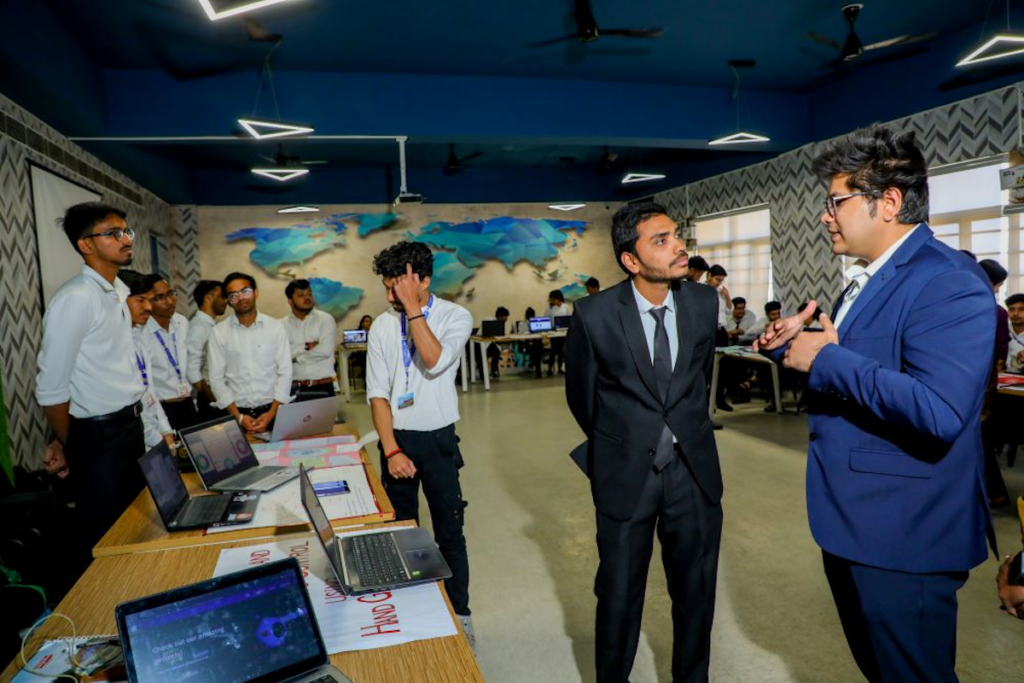
Here are some of the best engineering colleges in India, known for their academic excellence, infrastructure, faculty, and placement records:
Birla Institute of Technology and Science (BITS) Pilani
Location: Pilani, Rajasthan (campuses also in Goa, Hyderabad, and Dubai)
Highlights: Esteemed for rigorous academics, strong industry ties, and excellent placement records. Admission via BITSAT.
St.Andrews Institute of Technology and Management(SAITM)
Location: Gurgaon, Haryana
Highlights: Offers diverse B.Tech programs, including Computer Science Engineering (CSE), Computer Science Technology (CST), AI/ML, Data Science, and Electronics & Telecommunication Engineering.
Vellore Institute of Technology (VIT)
Location: Vellore, Tamil Nadu (with campuses in Chennai, Bhopal, and Amaravati)
Highlights: Known for high-quality education, modern infrastructure, and strong placement records. Admission through VITEEE.
Thapar Institute of Engineering and Technology
Location: Patiala, Punjab
Highlights: Recognized for its robust academic programs, good research opportunities, and strong placement support. Admission via JEE Main or university entrance exam.
PES University
Location: Bangalore, Karnataka
Highlights: Provides quality engineering education, experienced faculty, and excellent placement support. Admission through PESSAT or KCET.
FAQs
What are the main branches of BTech Course?
BTech includes various engineering and technical courses such as Computer Science Engineering (CSE), Electrical Engineering, Mechanical Engineering, Civil Engineering, Electronics and Communication Engineering, and Chemical Engineering. Each of these B Tech branches focuses on different aspects of engineering and technology.
How do I choose the right B.Tech branch for me?
Consider your interests, career goals, and strengths. Research various B Tech branches to understand the curriculum, career prospects, and industry demand. Talk to professionals in the field and seek guidance from academic advisors.
What is the scope of Computer Science Engineering (CSE)?
CSE is one of the technical courses focuses on computing, programming, and software development. It has a broad scope with opportunities in software development, cybersecurity, data science, artificial intelligence, and more.
What career opportunities are available for Mechanical Engineering graduates?
Mechanical Engineering graduates can work in automotive, aerospace, manufacturing, energy, and robotics industries. Career roles include mechanical engineer, product designer, and manufacturing engineer.
What are the prospects for Civil Engineering graduates?
Civil Engineering graduates work in construction, infrastructure, urban planning, and environmental engineering. They can become civil engineers, structural engineers, or project managers.
Is Electronics and Communication Engineering (ECE) a good branch?
Yes, ECE is a popular branch with a focus on electronics, communication systems, and signal processing. It offers lucrative job opportunities in telecommunications, consumer electronics, and embedded systems.
What is the difference between Electrical Engineering and Electronics Engineering?
Electrical Engineering, one of the B Tech branches, focuses on power generation, transmission, and distribution. Electronics Engineering, another key B Tech branch, deals with electronic circuits, devices, and systems used in communication and computing.
How does Chemical Engineering differ from other engineering branches?
Chemical Engineering education involves the design and operation of chemical processes to convert raw materials into valuable products. It combines principles from chemistry, physics, and engineering.
What are the future trends in engineering branches?
Future trends include advancements in artificial intelligence, renewable energy, smart cities, and automation. Specializations within these B Tech branches are likely to see growing demand.
Can I switch branches after starting my B.Tech?
Switching branches within the same institution may be possible, depending on the college’s policies and availability of seats. It usually requires meeting specific academic criteria and may involve a transfer process.
In Bachelor of Technology, Engineering Entrance Examination are neccesary or not?
Engineering entrance examinations, such as JEE Main, are generally necessary for admission into most Bachelor of Technology (BTech) programs. These exams assess a candidate’s aptitude and knowledge in subjects like mathematics, physics, and chemistry, which are essential for studying various B Tech branches.

